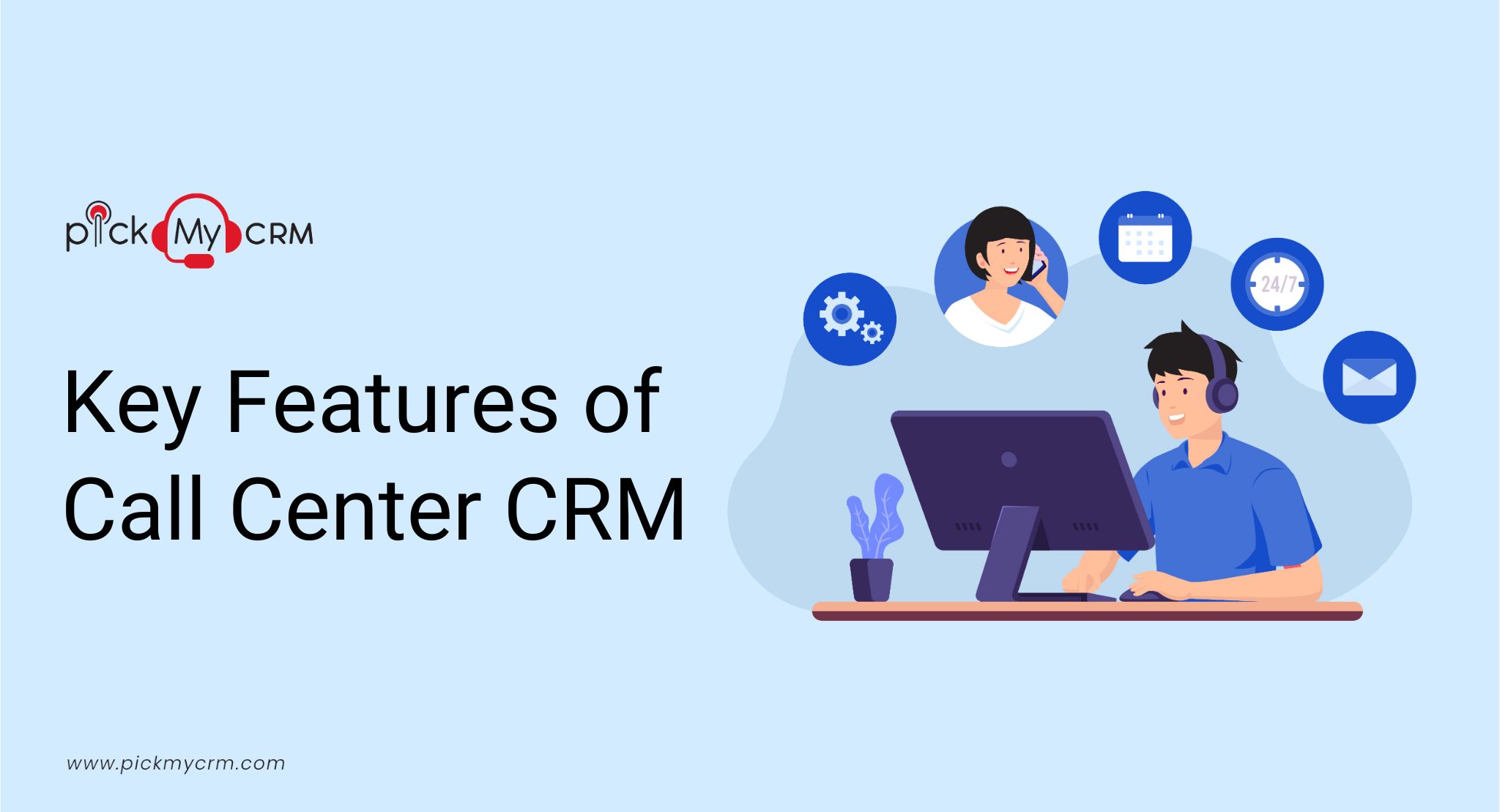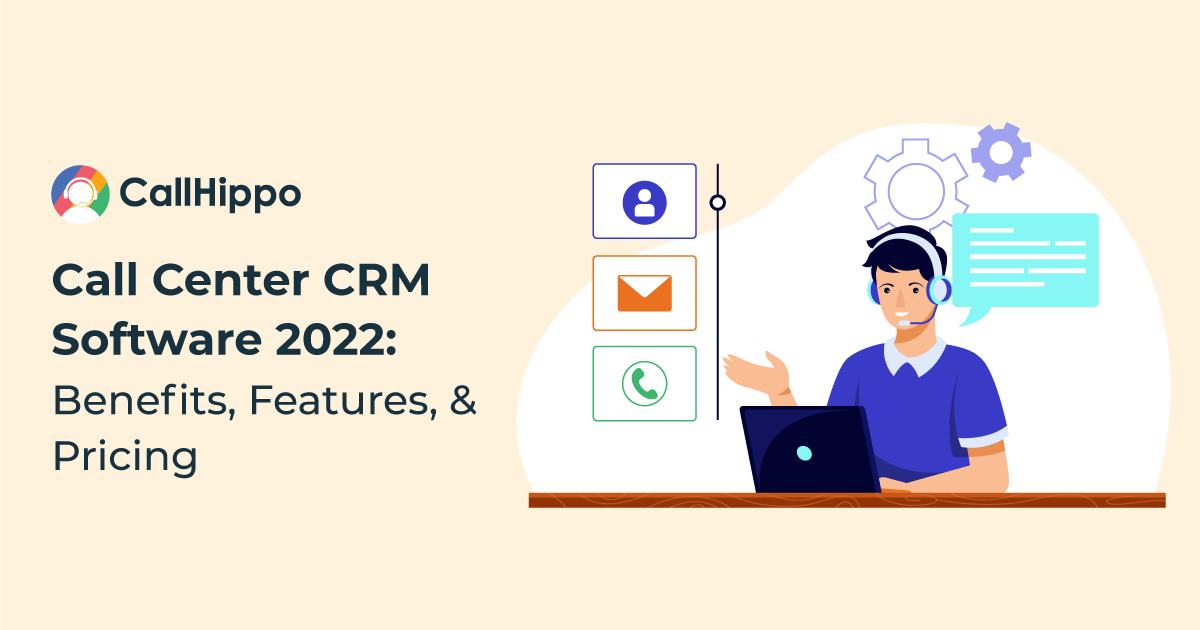Call center CRM features play a pivotal role in the modern call center landscape, empowering businesses to elevate customer interactions, streamline operations, and gain a competitive edge. These feature-rich systems provide a comprehensive suite of capabilities designed to enhance agent productivity, improve customer satisfaction, and drive business success.
From core functionalities like contact management and call routing to advanced capabilities such as AI-powered automation and mobile accessibility, call center CRMs offer a wealth of benefits that can transform the way businesses connect with their customers.
Core Features of Call Center CRM
Call center CRMs are indispensable tools that empower businesses to manage customer interactions effectively. They provide a comprehensive suite of features designed to streamline operations, enhance customer experiences, and drive business growth.
The core capabilities of a call center CRM include:
Contact Management
Centralized contact management is crucial for efficient customer relationship management. Call center CRMs enable businesses to store and organize customer information, including contact details, preferences, and interaction history. This consolidated view allows agents to access all relevant information at their fingertips, enabling them to provide personalized and informed support.
Call Routing
Effective call routing ensures that customers are connected to the most appropriate agent based on their needs and preferences. Call center CRMs use advanced algorithms to route calls based on factors such as agent availability, skill set, and language proficiency.
This intelligent routing reduces wait times, improves customer satisfaction, and optimizes agent utilization.
Performance Tracking
Performance tracking is essential for monitoring and improving the efficiency of call center operations. Call center CRMs provide detailed insights into agent performance, including call volume, average handle time, and customer satisfaction ratings. This data enables supervisors to identify areas for improvement, provide targeted training, and optimize processes to enhance overall performance.
Integration with Other Systems: Call Center Crm Features
Integrating a call center CRM with other business systems is crucial for maximizing its effectiveness and streamlining operations. By connecting to systems like CRM, ERP, and marketing automation, call center CRMs enhance data sharing, automate workflows, and provide a comprehensive view of customer interactions.
Data Sharing, Call center crm features
Integration enables seamless data exchange between systems. Call center CRMs can retrieve customer information from CRM systems, such as purchase history, preferences, and support tickets. This data enriches call center interactions, allowing agents to provide personalized and informed support.
Workflow Automation
Integration automates tasks and eliminates manual processes. For instance, when a customer calls with an order inquiry, the call center CRM can automatically fetch the order details from the ERP system and display them to the agent. This saves time, reduces errors, and improves efficiency.
Holistic Customer View
Integration provides a unified view of customer interactions across multiple channels. By combining data from call center CRMs, CRMs, and marketing automation systems, businesses can gain a comprehensive understanding of customer behavior, preferences, and engagement history.
Customization and Flexibility

Call center CRMs require customization to align with unique business requirements and optimize performance. This enables organizations to tailor the CRM to their specific processes, industry regulations, and customer demographics.
Customizable Features
- Custom Fields:Create additional fields to capture specific data points relevant to your business, such as customer preferences, product usage, or support history.
- Workflows:Automate routine tasks and streamline processes by creating custom workflows that trigger actions based on predefined conditions.
- Reporting Dashboards:Design personalized dashboards that display key performance indicators (KPIs) and metrics tailored to your business objectives.
Benefits of Flexibility
A flexible CRM allows organizations to adapt to changing business needs and industry trends. It enables:
- Scalability:Adjust the CRM’s functionality and capacity as the business grows or contracts.
- Integration:Easily integrate with other systems, such as ERP or marketing automation platforms, to create a comprehensive business ecosystem.
- Innovation:Support new features and technologies as they emerge to stay competitive and meet evolving customer expectations.
Reporting and Analytics

Reporting and analytics are crucial for call center CRMs as they provide valuable insights into performance metrics and customer interactions. These insights empower businesses to identify areas for improvement, optimize operations, and enhance customer experiences.Key metrics tracked by call center CRMs include call volume, average handle time, customer satisfaction, and resolution rates.
These metrics provide a comprehensive view of call center performance, allowing businesses to assess agent efficiency, identify bottlenecks, and understand customer needs.Analytics plays a significant role in optimizing call center operations. By analyzing historical data and trends, businesses can identify patterns, predict future demand, and make data-driven decisions to improve efficiency.
For example, analytics can help determine optimal staffing levels, identify training needs for agents, and optimize call routing strategies to minimize wait times and improve customer satisfaction.
Collaboration and Teamwork

Collaboration and teamwork are essential for call center environments, as agents need to work together to provide efficient and effective customer service. A CRM can facilitate communication, task management, and knowledge sharing among agents, enhancing their collaboration and teamwork.
Shared Calendars
Shared calendars allow agents to view each other’s schedules, ensuring that tasks are not duplicated and that agents are available to assist customers when needed. This coordination helps streamline workflows and prevents conflicts.
Chat and Instant Messaging
Chat and instant messaging features enable agents to communicate quickly and easily with each other, both within and outside of their teams. This real-time communication allows agents to collaborate on complex issues, provide support, and share information, resulting in faster and more efficient problem-solving.
Document Management
A centralized document management system within the CRM allows agents to access and share important documents, such as customer records, product information, and training materials. This ensures that all agents have the most up-to-date information and can provide consistent and accurate responses to customers.
Cloud-Based vs. On-Premises
Call center CRMs can be deployed in two main ways: cloud-based and on-premises. Each option has its advantages and disadvantages, and the best choice for a particular organization will depend on its specific needs and requirements.
Cloud-Based Call Center CRMs
Cloud-based call center CRMs are hosted by a third-party provider and accessed over the internet. This means that organizations do not need to purchase and maintain their hardware and software, which can save them a significant amount of money. Cloud-based CRMs are also typically more scalable than on-premises solutions, making them a good choice for organizations that are expecting to grow rapidly.
However, cloud-based CRMs can also be more expensive than on-premises solutions, and they may not be as secure. Additionally, organizations that use cloud-based CRMs may be concerned about the availability of their data in the event of an internet outage.
On-Premises Call Center CRMs
On-premises call center CRMs are installed on an organization’s own servers. This gives organizations more control over their data and security, and it can also be more cost-effective in the long run. However, on-premises CRMs can be more difficult to scale than cloud-based solutions, and they require organizations to purchase and maintain their hardware and software.
Factors to Consider When Choosing Between Cloud-Based and On-Premises Call Center CRMs
When choosing between a cloud-based and an on-premises call center CRM, organizations should consider the following factors:
- Cost:Cloud-based CRMs are typically less expensive than on-premises solutions in the short term, but they can be more expensive in the long run.
- Scalability:Cloud-based CRMs are more scalable than on-premises solutions, making them a good choice for organizations that are expecting to grow rapidly.
- Security:On-premises CRMs are more secure than cloud-based solutions, but cloud-based CRMs can be made more secure by using strong security measures.
- Availability:Cloud-based CRMs are available 24/7, but they may be unavailable in the event of an internet outage. On-premises CRMs are not available 24/7, but they are not affected by internet outages.
Examples of Popular Cloud-Based and On-Premises Call Center CRM Solutions
Some of the most popular cloud-based call center CRM solutions include Salesforce, Zendesk, and Freshdesk. Some of the most popular on-premises call center CRM solutions include Microsoft Dynamics CRM and Oracle Siebel CRM.
Artificial Intelligence (AI) and Automation

Artificial Intelligence (AI) and automation are revolutionizing the call center industry, enabling businesses to enhance customer experiences, improve agent productivity, and reduce costs.AI-powered features, such as virtual assistants, speech recognition, and predictive analytics, are transforming the way call centers operate.
These technologies empower agents with real-time insights, automate routine tasks, and provide personalized experiences for customers.
Virtual Assistants
Virtual assistants leverage natural language processing (NLP) to understand customer inquiries and provide automated responses. They can handle simple queries, schedule appointments, and gather information, freeing up agents to focus on more complex tasks.
Speech Recognition
Speech recognition technology converts spoken words into text, enabling agents to quickly and accurately document customer interactions. This eliminates the need for manual data entry, reducing errors and improving efficiency.
Predictive Analytics
Predictive analytics utilizes historical data to identify patterns and predict customer behavior. This information helps call centers prioritize calls, offer proactive support, and tailor interactions to individual customer needs.Automation further enhances call center operations by streamlining repetitive tasks. Automated call routing, self-service portals, and knowledge management systems empower customers to resolve issues independently, reducing call volumes and agent workload.Overall, AI and automation are essential components of modern call center CRMs, providing significant benefits that enhance customer satisfaction, agent productivity, and overall cost-effectiveness.
Mobile Accessibility
In today’s remote and hybrid work environments, mobile accessibility is crucial for call center CRMs. With mobile CRM apps, agents can manage calls, access customer data, and receive real-time updates from anywhere, ensuring seamless customer service.
Remote Call Management
- Mobile CRM apps allow agents to answer and make calls remotely, regardless of their location. This flexibility enhances productivity and ensures uninterrupted customer support.
- Agents can use mobile apps to initiate outbound calls, schedule callbacks, and transfer calls seamlessly, providing a consistent customer experience.
Customer Data Access
- Mobile CRM apps provide instant access to customer data, including account history, past interactions, and preferences. This empowers agents to personalize interactions and resolve issues quickly.
- Agents can update customer records, log notes, and create follow-up tasks directly from their mobile devices, ensuring accurate and up-to-date information.
Real-Time Updates
- Mobile CRM apps deliver real-time notifications and alerts, keeping agents informed about new messages, missed calls, and urgent requests.
- This real-time visibility enables agents to respond promptly to customer inquiries and avoid potential issues, improving customer satisfaction.
Concluding Remarks
In conclusion, call center CRM features are indispensable tools for businesses looking to optimize their customer interactions and achieve operational excellence. By leveraging these powerful features, organizations can empower their agents, enhance customer experiences, and drive business growth in the ever-evolving digital landscape.